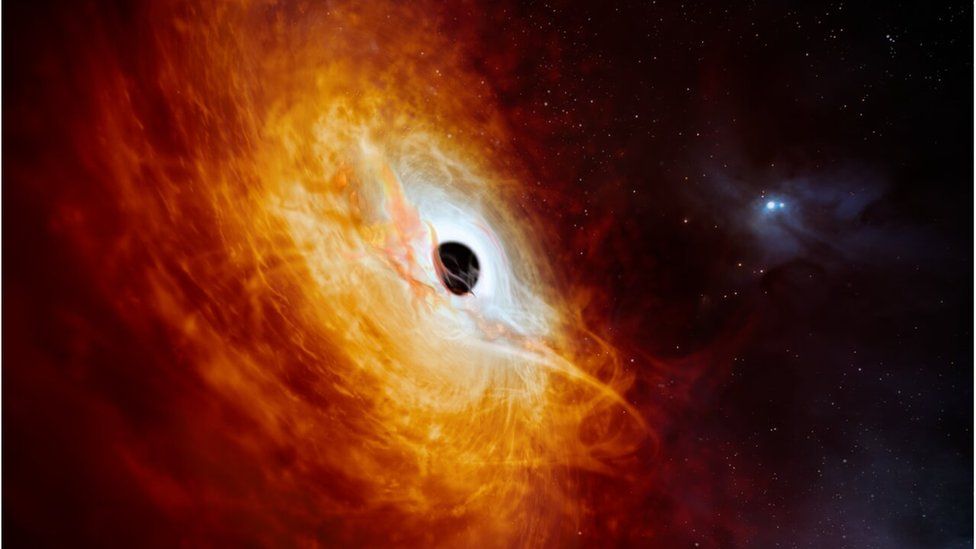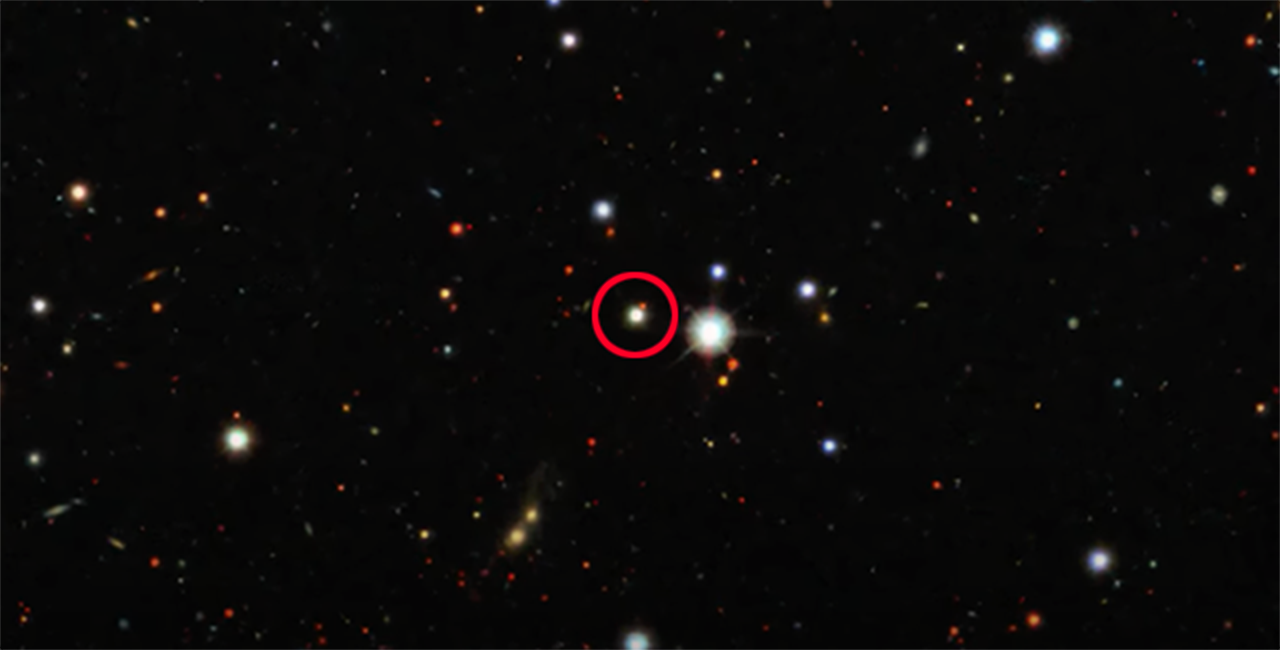Astronomers report an object that shines with a brightness equivalent to 500 trillion suns.
 Image source, ESO
Image source, ESOThe most luminous object ever detected has been spied in the distant Universe.
It’s a quasar – the bright core of a galaxy that is powered by a gargantuan black hole some 17 billion times the mass of our Sun.
Known as J0529-4351, the object’s power was confirmed in observations by the Very Large Telescope in Chile.
Scientists, reporting in the journal Nature Astronomy, say the black hole has a voracious appetite, consuming the mass equivalent to one Sun every day.
J0529-4351 was actually recorded in data many years ago but its true glory has only just been recognised.
“We have discovered an object which has previously not been recognised for what it is; it’s been staring into our eyes for many years because it’s been glowing at its brightness for longer than humankind has probably existed. But we’ve now recognised it, not as being one of the many foreground stars in our Milky Way but as a very distant object,” Christian Wolf, from the Australian National University (ANU), told BBC News.

Image source, ESO
The term quasar is used by astronomers to describe a particular type of AGN, or Active Galactic Nucleus. It’s the very energetic core of a galaxy which is being powered by an immense black hole that’s pulling matter towards itself at a prodigious rate.
As this material is accelerated around the hole, it is torn apart and emits a huge amount of light, so much so that even an object as distant as J0529-4351 is still visible to us.
This quasar’s emission has taken a staggering 12 billion years to reach the detectors at the VLT.
Everything about the object is astonishing.
The scientists involved say the energy emitted makes the quasar over 500 trillion times more luminous than the Sun.
All that light is coming from a hot accretion disc that measures seven light-years in diameter. That’s roughly 15,000 times the distance from the Sun to the orbit of Neptune.
All galaxies seem to have a supermassive object at their core, which probably means such objects are intrinsic to the evolution of those galaxies.
“In simple language, it means that without these black holes, our galaxy as we know it wouldn’t be what it is today. In fact, all galaxies would be very different without their supermassive black holes. In fact, it may even be possible that all galaxies form around these supermassive black holes,” ANU PhD student and co-author Samuel Lai told BBC News.
The puzzle is how some of the black holes got so big so early in the Universe. This is leading scientists to consider a scenario in which the objects grew directly out of the gas that existed just after the Big Bang, perhaps even before the first stars formed.

Image source, ESO